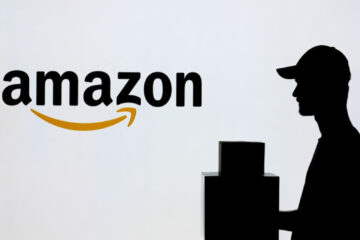With more and more companies calling its employees back to the office, the sustainability of remote work has come into question. Hung Lee, editor at Recruiting Brainfood joined TheStreet to discuss the future of work.
Related: Amazon confirms fears about future of remote work with latest move
Full Video Transcript Below:
CONWAY GITTENS: So let’s talk some trends in the industry right now from your perspective. What’s your view on remote work? Is it here to stay?
HUNG LEE: Remote work. We were very confident that it was going to be the game changing thing. And it turns out that probably it was a not as – we’re less confident about the status of remote work simply because the economic conditions have changed such that employers have more power than they did 18 months, two years or so ago. Remote work, by the way, is generally a preference that the workers are more in favor for, whereas the employers and the bosses are less in favor of remote. So you can’t sort of separate out the political dimension on this and that tension between what is optimal for a, for an employee and what is optimal for an employer is, is getting played out. I think with certain types of work which are going to be remote. But I think there will also be a big pressure for people to return to work, return to office, should I say. What I can tell you is that the new jobs that are being created and the new jobs that are being advertised, there’s been a massive drop of remote jobs that are advertised. That tells me that the people who currently work in remote individuals that have held on to their jobs over the last two or so years, but the new jobs that are being advertised today, they’re telling people: back to the office.
Expert tips on landing your dream jobAI could actually help you get a new jobTop skills job recruiters want to see on your resumeRemote jobs are harder to find, but hybrid work is here to stay
CONWAY GITTENS: And what about the hybrid trend? Is it just straight five day work week back in the office or is is hybrid more of a friendlier model than full out remote work?
HUNG LEE: Yeah, I think this is this comes down ultimately to the nature of the company and maybe even the nature, the culture of the organization. I think hybrid is a very acceptable compromise between the employer and the employee. I think most people would understand that there’s a need to sometimes get in the office and speak and work closely with your colleagues. And other times we recognize that it’s great to be able to work more flexibly, particularly people that have, you know, primary caregiving responsibilities, for instance, or they’ve got other sort of issues that are very important for them to deal with. It’s impossible to deal with if you’re, you know, spending time commuting every day to the office. I think hybrid is the compromise that will shoot for most companies, I hope will take a mature view on this. But there will be some, some organizations that will clearly say, OK, you’ve got to be in the office all the time or bust. And I guess that’s where, you know, individuals will have to make decisions as to what kind of company they prefer to work for.


